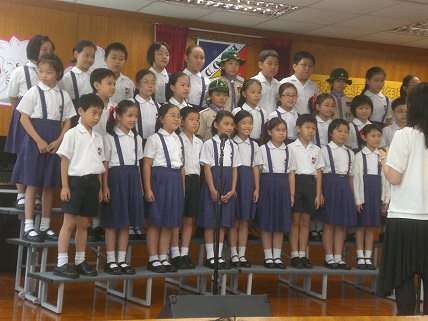Common Core Will Make Schools in U.S. More Like China and That's Not a Good Thing


One of the supposed selling points of the Common Core standards is that they are "internationally benchmarked" in order to make the U.S. education system more competitive with better systems in other countries. Implement Common Core, and U.S. students will catch up to Chinese students in no time—or so proponents of national standards claim.
Even if that's true, it may not be a good thing. The New York Times recently published a fascinating interview with Yong Zhao, a professor of education at the University of Oregon. Zhao was born in China; unlike many American intellectuals, he does not think U.S. schools should try to emulate China.
"If the United States and the rest of the West are concerned about being overtaken by China, the best solution is to avoid becoming China," he said.
Chinese schools stamp out individuality and make kids spend all their time preparing for exams that are focused on "narrow intelligence." This produces fewer creative and entrepreneurial people, which is precisely what the authoritarian national government of China wants, according to Zhao.
Zhao warned that the kind of standardization offered by Common Core is a danger to a free culture and a free economy. Relevant excerpts from the interview below:
Q. You have said that traditional Chinese education actively "harms" children. How?
A. It basically ignores children's uniqueness, interests and passion, which results in homogenization. It forces them to spend almost all the time preparing for tests, leaving little time for social and physical activities. It also places them under tremendous stress through intense competition, which can damage their confidence and lowers their self-esteem.
Q. Is the United States becoming like China in education? How?
A. The U.S. has certainly become more like China in recent years. The No Child Left Behind Act has increased the stakes and usage of standardized testing. President Obama's Race to the Top and other initiatives continue to push testing into schools and classrooms by associating test scores with teacher evaluation. The Common Core State Standards Initiative has been pushed to many states, creating de facto national standards in math and English language arts. So American education today has become more centralized, standardized and test-driven, with an increasingly narrow educational experience, which characterizes Chinese education.
Q. Will this damage America?
A. I believe so. Because a narrow education experience that is centrally dictated, uniformly programmed and constantly monitored by standardized tests is unlikely to value individual talents, respect students' interest and passion, cultivate creativity or entrepreneurial thinking, or foster the development of noncognitive capacities. But it is the diversity of talents, passion-driven creativity and entrepreneurship, and social-emotional well-being of individuals that are needed for the future economy.


Show Comments (15)